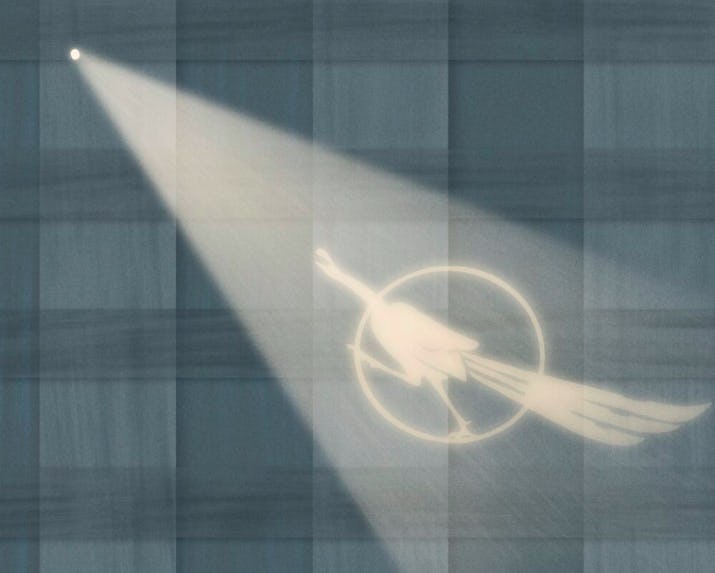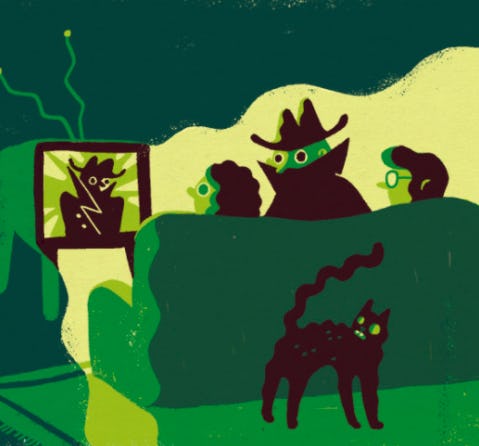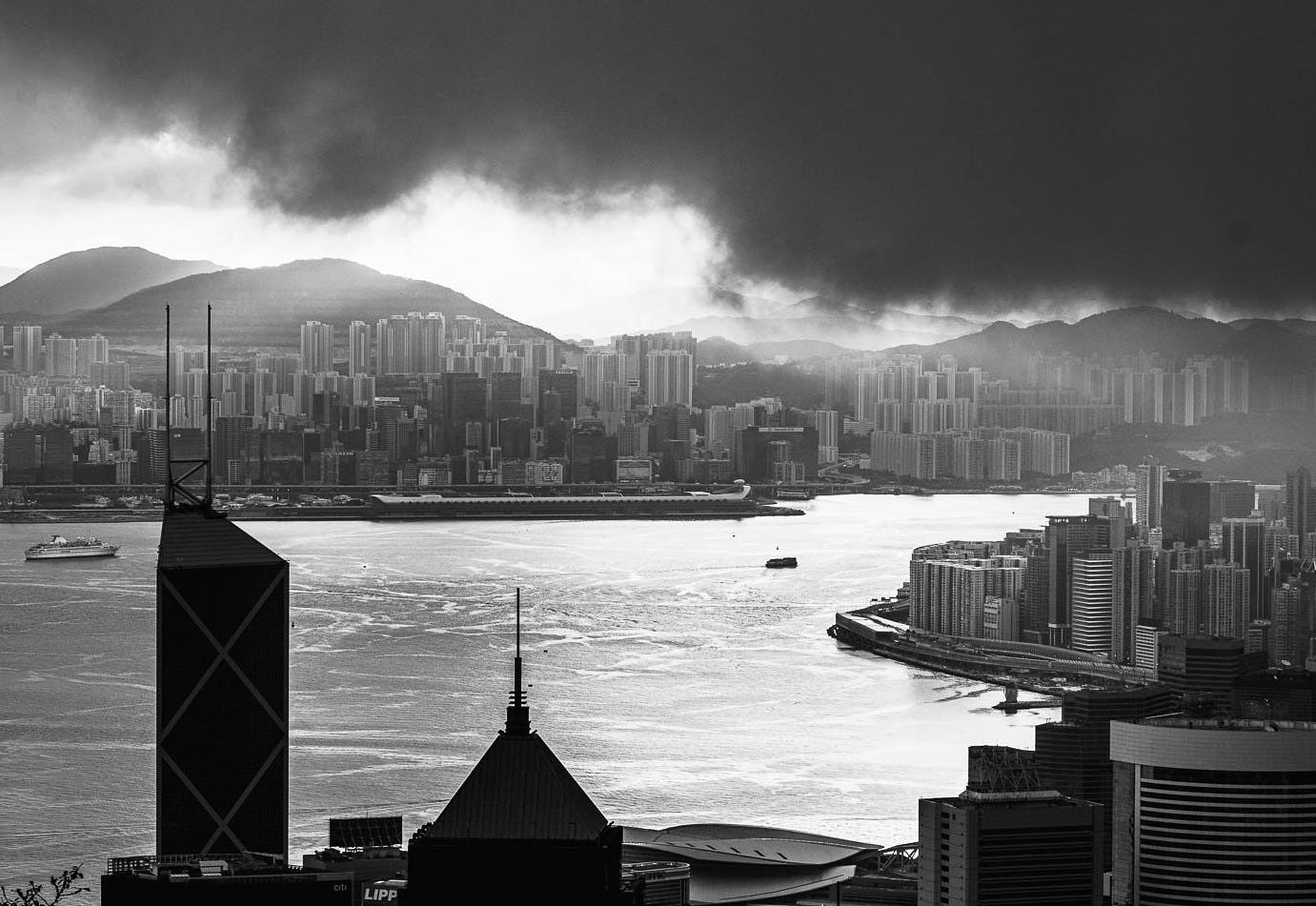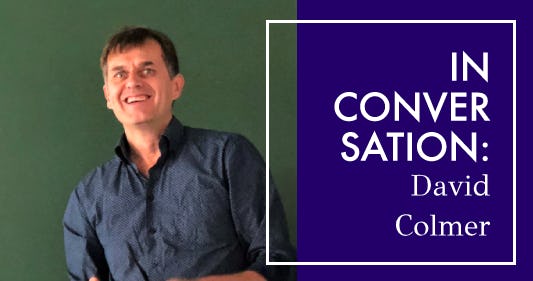'Un-Australian'
Tiffany Tsao • 3 December 2021
How do narrow definitions of ‘Australian’ prevent us from recognising Australian-ness for what it really is? How does the classification of certain issues as 'foreign' obscure the fact that similar problems occur on Australian soil – and off it but under the direction of the government of Australia?
Chris Lin and Elizabeth Flux write about the human rights crises in the respective countries of their birth and the strong connections they, and others like them, continue to feel with their communities abroad. Their essays are also a call for those in Australia to take action – to realise that the oppression and violence taking place 'over there' should concern people here as well.
Alexander Wells’ critical review of canonical Western portrayals of the Stasi in Germany – for American journal The Baffler – is, on the surface, as far from Australian in subject matter as one can get. Of course, one of the points this edition makes is that Australians write about non-Australian things. And this issue draws its curatorial ethos directly from Wells’ observation – that attributing bad behaviour to 'foreign countries peopled by cartoonish figures of evil' lulls us into becoming oblivious about bad behaviour closer to home.
Jeanine Leane’s essay on her month-long residency in China recounts the exclusion of Indigenous peoples in an arena of international cultural diplomacy, bringing this exclusion into conversation with the suppression of minority voices by the Chinese government.
The fuzzy boundaries between domestic and foreign state-sanctioned violence are further blurred by two pieces from Southerly’s latest issue, which is devoted to refugee writing. 'Narrative of the Displaced!' by Erfan Dana (also known as Shams Hussaini) and 'Pokun the Little Black King' by Mardin Arvin are both set offshore – in East Kalimantan and on Manus Island. The writers are people whom Australia has shut out as profoundly un-Australian, but whose suffering is all too Australian, inflicted by the Australian government.
To round out this spotlight on un-Australian people, activities, and things, this week’s instalment of our Writer & Writer series features Amsterdam-based Australian translator of Dutch literature David Colmer in conversation with New-York-based Australian translator of Dutch literature Sarah Timmer Harvey.

'A hole the size of a pencil tip': Reflections on Burma’s coup since February
Chris Lin, Portside Review, 2021
'There’s a line in Burmese poet Min San Wai’s poem "Hole" that acutely captures what I have felt since February, when the military seized power in Burma and unleashed its campaign of violence. The poem is an elegy to Pan Ei Phyu, a fourteen-year-old girl killed by a bullet that pierced the bamboo wall of her house in Meiktila, Burma. Its title is a reference to the bullet hole etched on the bamboo wall – the size of a pencil tip – a miniature image of the mass atrocities Burma’s regime has committed on its people. In the poem, family members take turns peering into the hole, trying to reclaim their daughter.'

The Spies of Others
Alexander Wells, The Baffler, September 2021
'Are we really being brave when we condemn the Stasi, those long-conquered bastards, most of whom are either grey-haired or dead, their archive opened up to the public? Are we boldly facing up to a difficult truth – or are we consoling ourselves with the guilt trips of others, searching hungrily for reassurance that anything we, the Cold War’s winners, might do could never be quite so bad as what the other lot got up to?'

This is Not a Eulogy for Hong Kong
Elizabeth Flux, Kill Your Darlings, July 2020
'Hong Kong has slipped out of the news in Australia, and I hate that it has taken a story that hits home for me to realise just how truly devastating that is – to watch as a critical chapter in your life plays out silently off-stage. I can’t even imagine what it would be like to live there; to see it unfold up close. From afar, I don’t really know what else to do other than to keep talking about it, keep reading about it – keep trying to stop one more story disappearing into the sea of horror that is 2020.'
Kill the Chicken to Scare the Monkey
Jeanine Leane, Peril, July 2019
'"You just don’t sound Australian." She tilts her head and looks me up and down now as Roberto steps aside. "You know…your accent! Doesn’t sound Australian!"
"It’s Aboriginal Australian," I say.
"Oh," she cocks her head, "sorry! Just didn’t sound like any Australian accent I know! That’s all. I thought I was the only Australian on the residency. Looks like I’m wrong!" she smiles.'
Narrative of the Displaced!
Erfan Dana/Shams Hussaini, Long Paddock, November 2021
'I write this to raise awareness of an inhumane situation and the awful plight of people forcibly displaced. We have spent more than 42 repulsive months living in the corner of a locked cage...but I continue to write. I write so you can read. So you realise the life we live. So that you absorb something of it.'
Pokun the Little Black King
Mardin Arvin, Long Paddock, November 2021
'I am a refugee. Someone whose life in their homeland had become intolerable, someone who has given up everything. Family, everything they loved. Even their dreams. Someone who flees their country but who dreams of better days. After all that hardship, after all that oppression, after all that humiliation, I arrived here in Manus. The compassion of this family on this remote ailan was like treatment for wounds I had suffered over a long time.'

WRITER & WRITER: Taking Up the Translator’s Baton: An Interview with David Colmer
Sarah Timmer Harvey & David Colmer, Asymptote Blog, May 2019
STH: Speaking of language, you are, of course, originally from Australia and speak an English that is neither British nor American, but uniquely somewhere between the two. Do you have a default form of English that you use when translating or does it change depending on the project?
DC: This is a massive question! It’s so difficult to disentangle your own language influences and produce something that won’t set off any alarms in a reader from a different background. And certain backgrounds are privileged, of course. You can play it safe by veering towards a university-educated metropolitan usage, but that might not always be appropriate for the character or book. Besides geographical origin, you have generational and class factors too.
Thank you so much for warmly welcoming The Circular onto the literary scene. It’s our eighth week of circulation and we now have over five hundred subscribers. We can’t quite believe it ourselves!
We’re still taking reading recommendations for next week’s issue, which is themed ‘Your Favourite Things’. In the spirit of community, we thought it would be nice to end the year with an issue consisting entirely of people’s favourite online nonfiction reads. Write to editor@thecircular.com.au and tell us: What was your favourite online non-fiction read in 2021 and why? (It doesn’t have to have been published in 2021; it can be an interview, essay, graphic non-fiction piece, book review, non-fiction poem, etc.; and yes, our interest is Australian non-fiction but we do define 'Australian' in the loosest sense of the word.)
The selected participants will be credited for their recommendations unless they prefer to remain anonymous. Deadline: Tuesday 7 December 2021. And a big thank you to all the readers who’ve already written in!